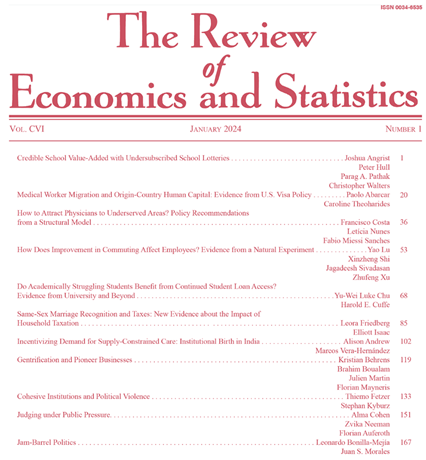消除歧义厌恶
IF 6.8
1区 经济学
Q1 ECONOMICS
引用次数: 2
摘要
我们报告了两个实验的结果,这两个实验旨在更好地理解模糊决策的驱动机制。我们从具有不同复杂程度的受试者那里引出了对不同不确定性来源的个人偏好,这涉及到不同程度的复杂性。我们发现(1)歧义厌恶对复杂性是鲁棒的,但先前报道的对歧义的态度和复合风险之间的强关系不是。(2) 埃尔斯伯格模糊态度只能部分解释为对不太复杂的主题的复杂性的态度。总体而言,无论受试者的复杂程度如何,埃尔斯伯格模糊态度的主要驱动因素是对未知概率的具体处理。本文章由计算机程序翻译,如有差异,请以英文原文为准。
Unraveling Ambiguity Aversion
We report the results of two experiments designed to better understand the mechanisms driving decision-making under ambiguity. We elicit individual preferences over different sources of uncertainty, entailing different degrees of complexity, from subjects with different sophistication levels. We show that (1) ambiguity aversion is robust to sophistication, but the strong relationship previously reported between attitudes toward ambiguity and compound risk is not. (2) Ellsberg ambiguity attitude can be partly explained by attitudes toward complexity for less sophisticated subjects only. Overall, regardless of the subject's sophistication level, the main driver of Ellsberg ambiguity attitude is a specific treatment of unknown probabilities.
求助全文
通过发布文献求助,成功后即可免费获取论文全文。
去求助
来源期刊

Review of Economics and Statistics
Multiple-
CiteScore
8.50
自引率
0.00%
发文量
175
期刊介绍:
The Review of Economics and Statistics is a 100-year-old general journal of applied (especially quantitative) economics. Edited at the Harvard Kennedy School, the Review has published some of the most important articles in empirical economics.
 求助内容:
求助内容: 应助结果提醒方式:
应助结果提醒方式:


